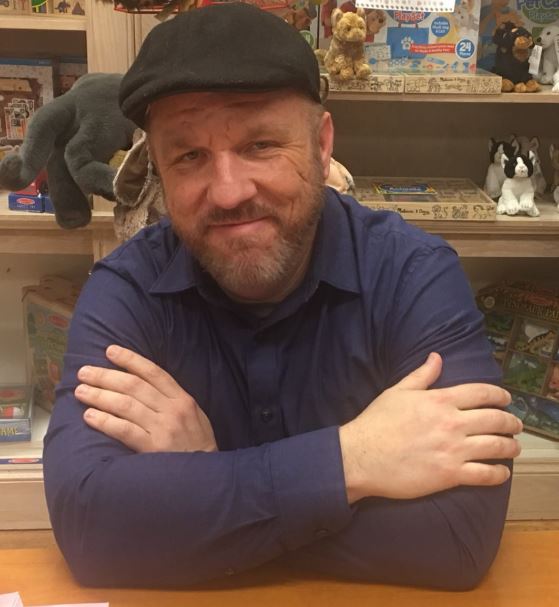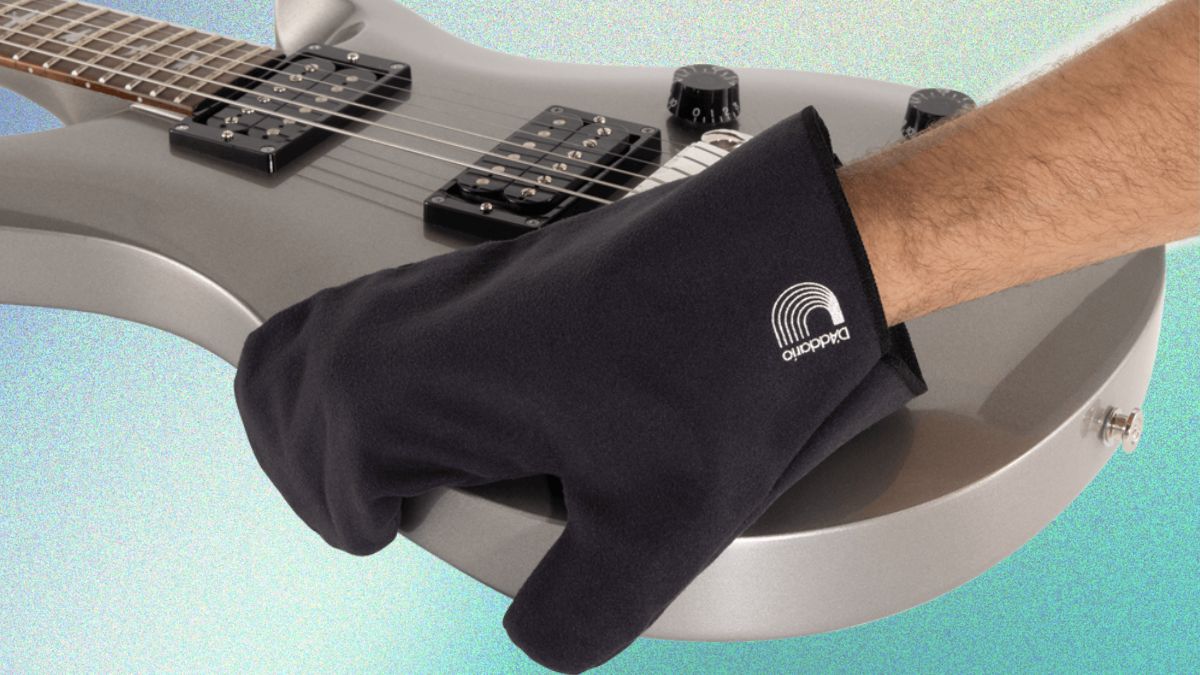Ron "Bumblefoot" Thal Discusses His Eclectic New Album, ‘Little Brother Is Watching’
All the latest guitar news, interviews, lessons, reviews, deals and more, direct to your inbox!
You are now subscribed
Your newsletter sign-up was successful
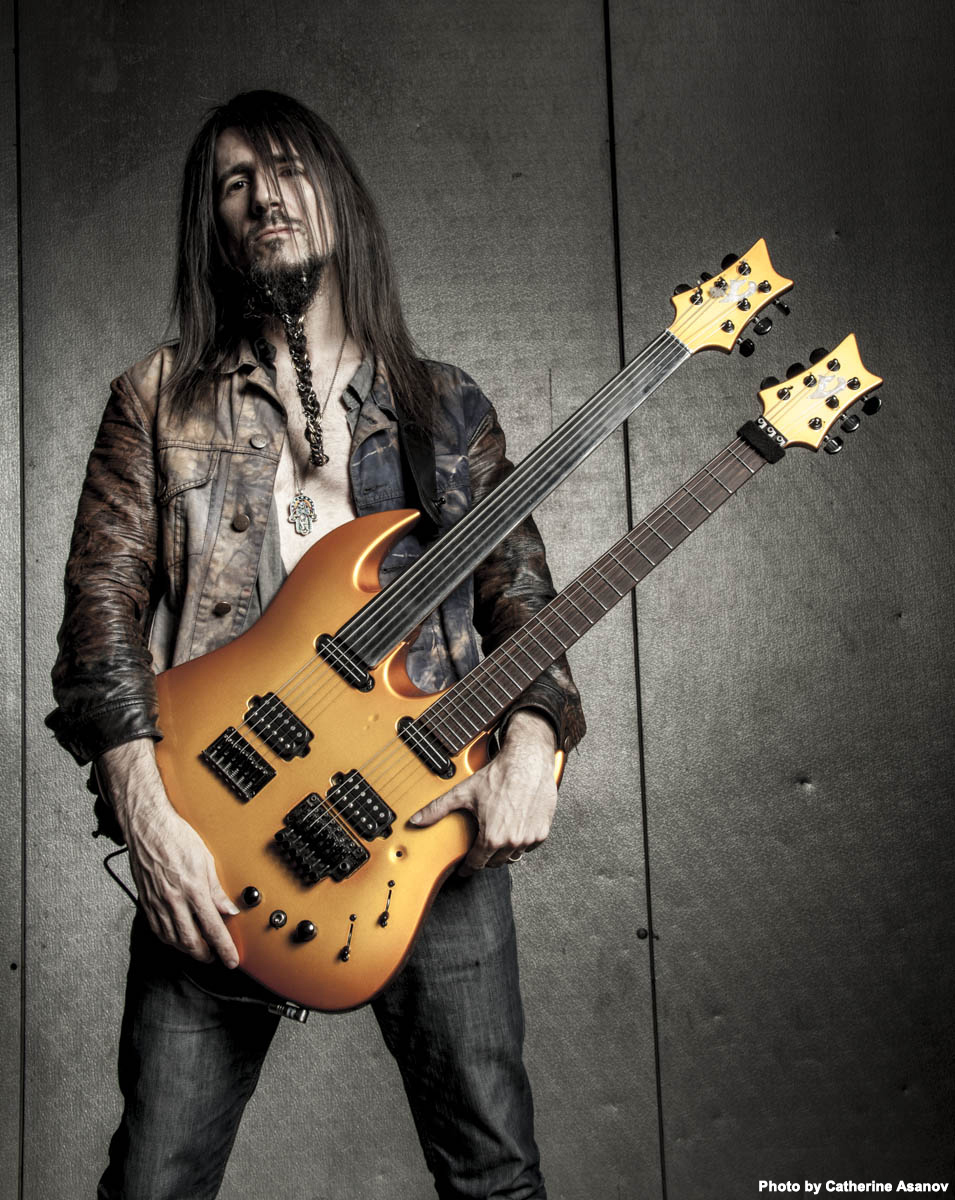
For the better part of 20 years, guitar virtuoso Ron “Bumblefoot” Thal has performed at sold-out shows and festivals around the world.
Thal, whose unique guitar work is an undisputed highlight of Guns N' Roses' Chinese Democracy album (2008), also headlines as a solo act and helps raise awareness for several constructive causes, including the Red Cross, Operation Smile and the Earthquake Relief Fund.
Although it’s been nearly seven years since he’s released a solo album, Bumblefoot is back with Little Brother Is Watching, his 10th full-length solo release.
It's an inspired collection of eclectic, modern rock that's packed with tasty guitar work and lyrics about life in the digital age and beyond. The songs, including the album’s title track, reflect a change in perception of who’s watching who, while “Don’t Know Who to Pray to Anymore” and “Livin’ the Dream” focus on self-reflection and the need to question everything.
Although he’s unable to discuss his current Guns N' Roses status, you can tell in speaking with Thal that he’s at a good place in his life right now, and it’s even more obvious when listening to Little Brother Is Watching.
I recently spoke with Bumblefoot about the new album, his songwriting, gear and another new project, Art of Anarchy.
GUITAR WORLD: What spawned or inspired this new album?
All the latest guitar news, interviews, lessons, reviews, deals and more, direct to your inbox!
It’s been too long since I’ve done an album. Although I did some one-off singles in 2011, it’s been a while since I did a full collection of music. Due to touring, there was never enough time to dedicate and keep momentum in a studio. Now that I’ve got that time, it was time to make that happen.
How would you describe Little Brother Is Watching in terms of how it relates to some of your previous work?
The foundation for everything I’ve done has been punk and classic rock. That’s what I grew up on. Everything else is icing on that cake. As I got older and with all of the time that’s passed and life experiences, there were more stories to tell. I just got more direct about telling them.
What’s your writing process like?
It’s always different. The end result is a song and you know all of the pieces that lead up to it, but they always happen in a different order. It could start with drum groove, a title, a guitar riff and melody, or maybe it’s just something you want to say. The process usually starts in my head.
Then once everything sounds right I’ll get together with my drummer [Dennis Leeflang] and play it for the first time with an acoustic guitar, and we’ll start talking about the vibe. When the time comes to lay drums, I’ll start laying down spontaneous, one-take scratch tracks. And because I don’t over-think it, they tend to become the best ideas. Just letting who I am navigate where it goes. The guitar melodies and solos I did were all scratch tracks and my first ideas.
I’d like to ask you about a few individual tracks from the new album. Let's start with “Little Brother Is Watching."
It’s a subject that hasn’t really been touched upon very much. It’s just a statement on how we all live. I felt like I needed to write a song that talks about the whole change that’s occurred in how people always felt the government was too invasive into our lives and were keeping tabs on what we do. The truth is we do that to ourselves. If the police are doing something wrong, you know people are going to be putting it on their cell phones and posting it on YouTube. Now it’s more like we watch the power instead of the power watching us. We’ve become a million armies of one.
“Don’t Know Who to Pray to Anymore”
That’s one of my favorite songs from the album. It has a singable guitar melody and is really about something everyone goes through at some point. Where you start to question everyone and everything, including your faith.
“Argentina”
That’s one of those epic songs with three different movements. The first section has a tango kind of feel and is about throwing caution to the wind and jumping into something. The second part is about expecting things to be different and how the two sides of the relationship don’t necessarily see eye to eye. The third part is about how all of that positive energy can be challenged and go dark and how love can become vengeance. It’s about a relationship but not in the way a man and a woman fall in love.
“Livin’ the Dream”
It’s a real song about what it’s like to be on the road touring. A lot of people from the outside might see it as something glamorous. But it’s really about what you go through when you have to make the transition from putting the life you know at home on pause and hitting the road.
What was the recording process like?
It was therapeutic. I love being creative. When you do a show, you do it and it’s over. But when you make a song and put music into the world, it’s something that’s going to out live you.
You’ve done a lot of work with charities lately. How important is it for you to be able to give something back?
It’s everything. Over the last few years, I’ve begun to figure out what matters and have started making a lot of decisions. I would rather play for 10 little kids and put a smile on their faces instead of playing for 100,000 people. The world might not agree, but that’s me and that’s how I’m going to live.
Can you give me an update on another one of your projects, Art of Anarchy?
It’s an interesting album that we actually started working on in 2011. Scott Weiland wrote and recorded all of the vocals on the album, and it will be coming out in late spring.
Did you always know music would be your calling?
I did. From the time I heard the Kiss Alive when I was 5, I knew it was something I wanted to do. By the time I was 6 I already had my first band and was writing songs with my friends. We would play in basements, back yards and elementary school. Anywhere that we could.
I still remember spending all day cutting up little pieces of paper and putting them in Solo cups so everyone could throw the confetti into the air during the last song. I still laugh about that now 30 years later because nothing has changed. At the end of the show, there are always the confetti canons. Same stuff just bigger proportions! [laughs].
What’s your current setup like?
I’ve got my Vigier Signature double neck, a fretted/fretless backbreaker beast of a guitar, and usually go out just with that. For amps, I like the ENGL Invader 100-watt head and a nice Marshall cabinet.
I know you can’t speak about your current situation with Guns N’ Roses, but what was/is it like being part of such an iconic band?
I’ve done a lot of things and played and recorded with a lot of people, but it actually felt normal. You don’t think of it as being iconic or this or that. You think about it as we’re a bunch of musicians getting together because this is what we do!
What are you most looking forward to this year?
Putting out all of this music this year makes me feel alive. It makes me feel that the dimmer switch has been turned all the way up. I feel at peace inside knowing I’m doing what I should be doing and what I want to be doing.
For more about Bumblefoot, visit bumblefoot.com.
James Wood is a writer, musician and self-proclaimed metalhead who maintains his own website, GoJimmyGo.net. His articles and interviews are written on a variety of topics with passion and humor. You can follow him on Twitter @JimEWood.
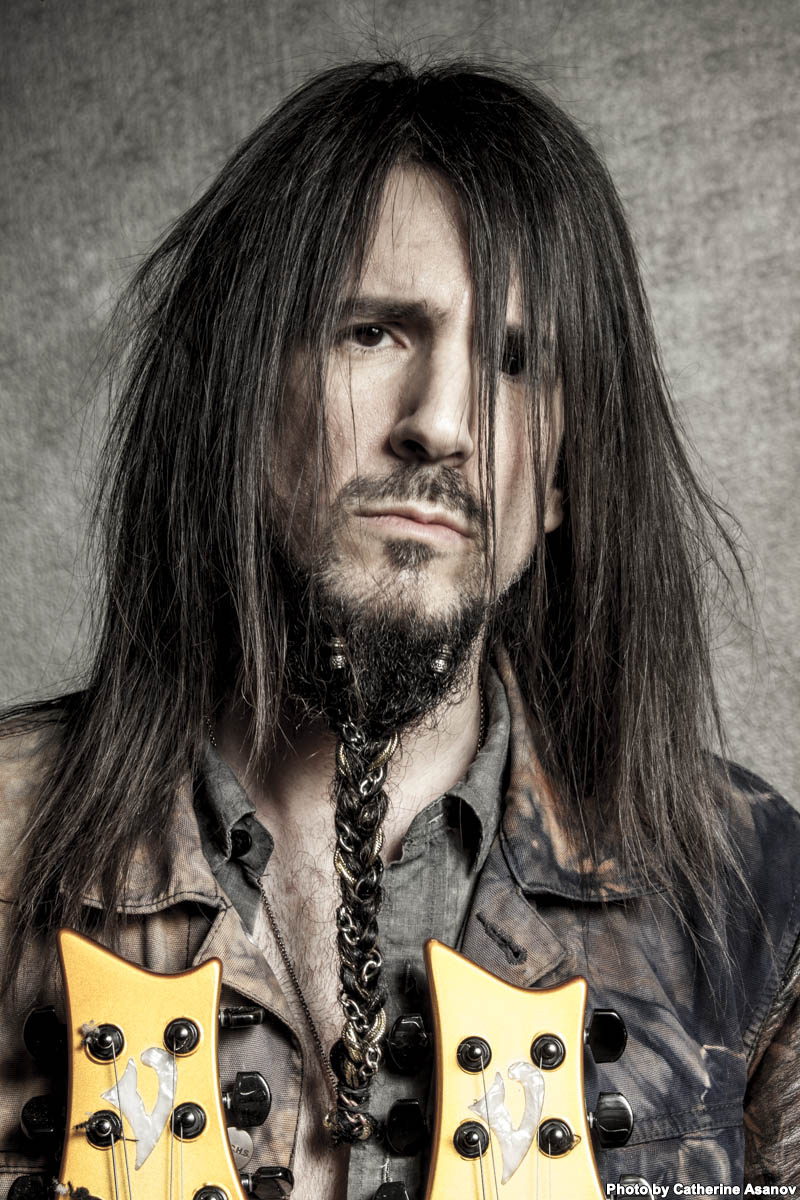
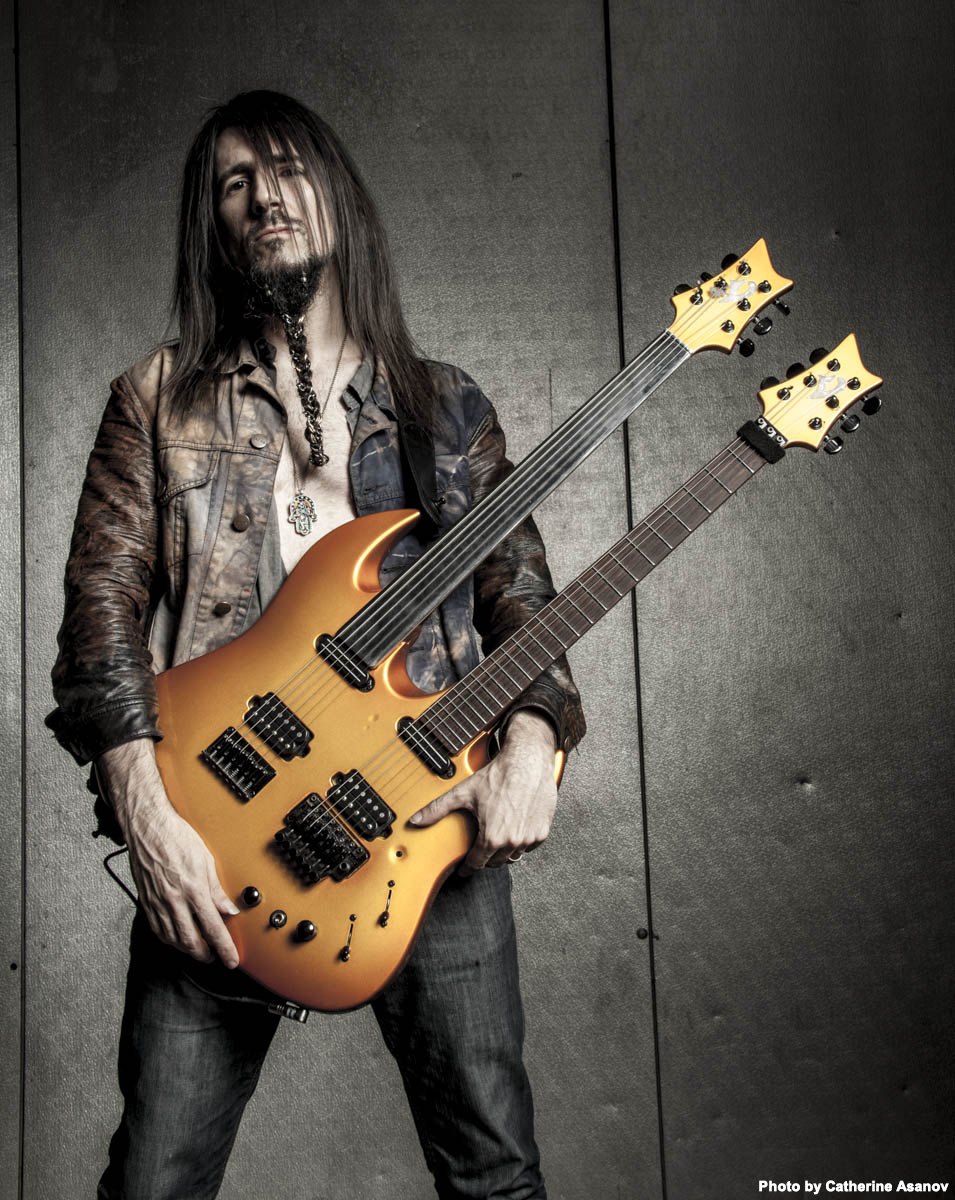
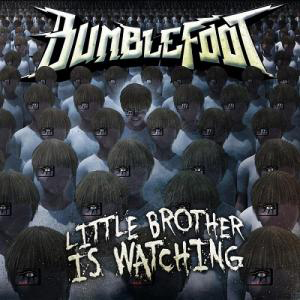
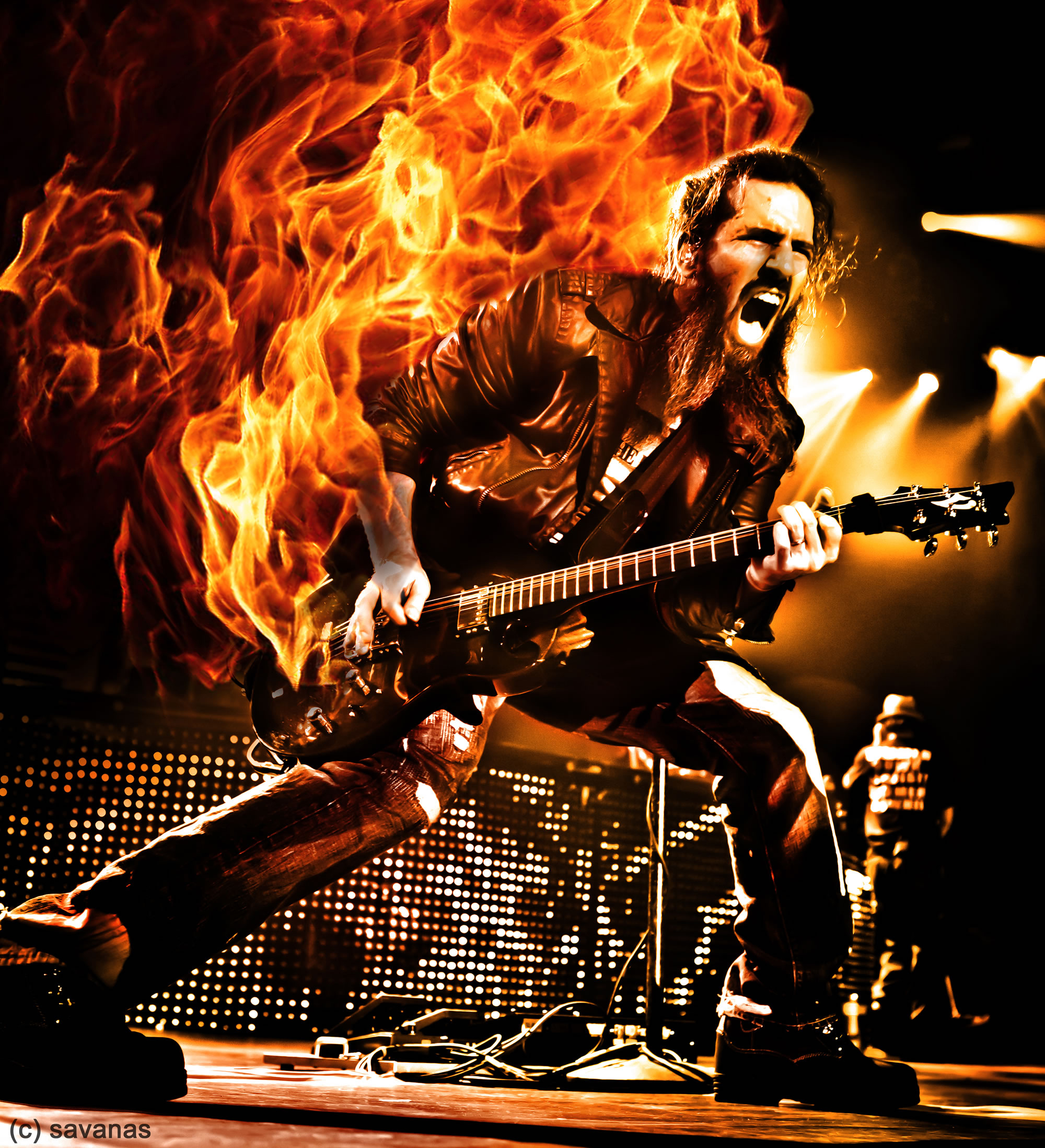
James is a guitarist and freelance writer who's interviewed some of the biggest names in music. He is the author of four books and his writing credits include work for Guitar World, AXS and Yahoo! as well as for his hometown newspaper where he writes on a variety of topics with both passion and humor. As a guitarist, he's performed everywhere from local bars and nightclubs to some of the biggest stages in front of thousands of music fans.
